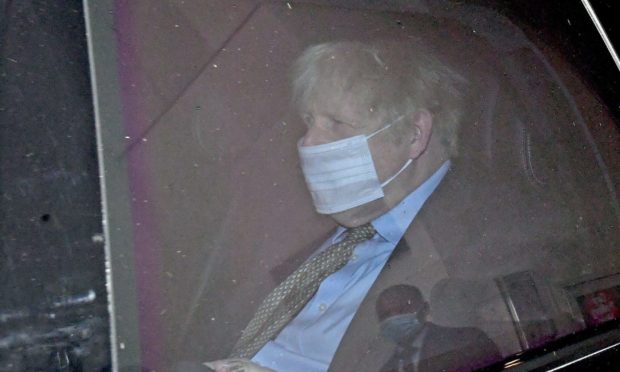The Prime Minister has claimed referendums are “not particularly jolly events” and suggested 41 years is the “right sort of gap” between them.
Boris Johnson was asked on BBC’s Andrew Marr programme what “democratic tools” were in the hands of Scottish voters who may want to leave the union in the backdrop of Brexit and the UK Government’s handling of the cornavirus pandemic.
The Conservative leader said: “Referendums in my direct experience in this country are not particularly jolly events.
“They don’t have a notably unifying force in the national mood, they should be only once in a generation.”
Asked what the difference was between a referendum on EU membership being granted and another on Scottish independence being requested, he said: “The difference is we had a referendum in 1975 and we then had another one in 2016.
“That seems to be about the right sort of gap.”
The 2014 referendum resulted in a 55.3% vote against Scotland going alone.
A recent poll from The Scotsman/Savanta ComRes, results showed support for a second independence referendum growing, with 58% of voters saying they would not vote yes for independence, with 42% voting no.
The survey, released last month, is the 17th in a row to show majority support for leaving the UK, with backing for independence first turning the tide in June.
However, former SNP deputy leader Jim Sillars told The Sunday Times that First Minister Nicola Sturgeon should “deprioritise” Scottish independence and focus instead on tackling threats to the economy.
The veteran nationalist support independence but said that with more people facing poverty as a result of the pandemic, an unemployment “time bomb” and spiralling public debt, Scotland needs a “reordering of priorities”.
On Hogmanay, Nicola Sturgeon said Europe should “keep a light on” as Scotland will “be back soon”.
The first minister tweeted just after the Brexit transition period formally ended at 11pm on December 31.
